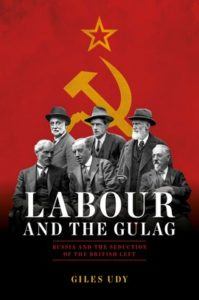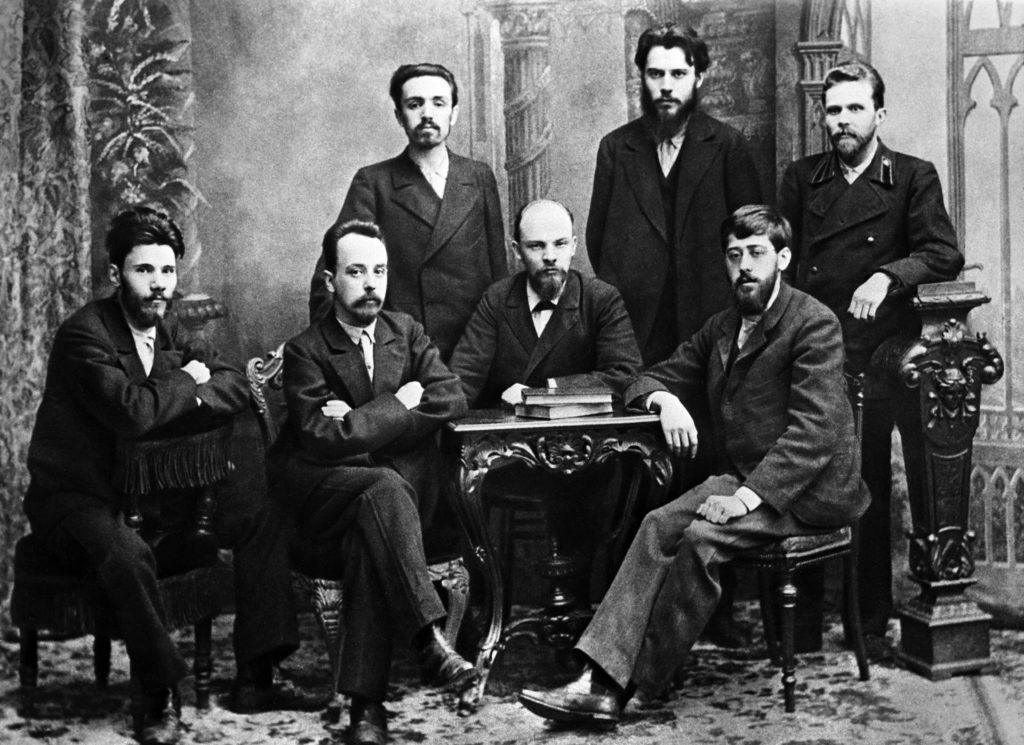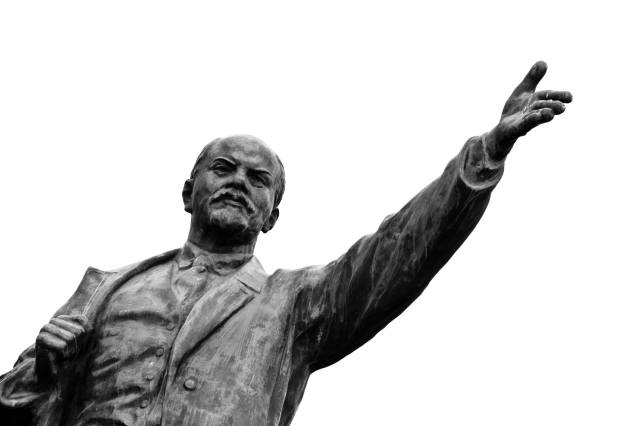
While today we know much about the Nazi concentration camps, there is little awareness in the West of the vast extent of its Soviet equivalent – the gulag, the prison camp system first established by Lenin and then enlarged by Stalin.
Although millions were incarcerated in Soviet labour camps, often in the most terrible conditions, there were no newsreel cameras to record their liberation (photographers would have been shot and there was no liberation to record). Released prisoners were too frightened to speak out; former inmates were shunned, denied employment and education, and banned from living in any major cities. By contrast with Willy Brandt’s ‘kniefall’ before the Warsaw ghetto monument, there has been no act of national repentance for excesses of the Soviet Communist era. Today, gulag survivors and their families see Russia governed by a former member of the state body which, in an earlier incarnation, also comprised their guards and executioners.
Soviet Communism’s repression of its citizens represents one of the great crimes against humanity of the 20th Century but the lack of public awareness of it in the West is not only due to the repressors’ success in hiding their tracks. Western enthusiasts for Lenin’s ‘great experiment’ alternately looked the other away, denied the evidence, or actively supported the Moscow regime.
I first became aware of this while I was writing about the Siberian gulag. I came across impassioned speeches in the House of Lords in the early 1930s on behalf of over a million smallholding peasants, the ‘kulaks’, who had been deported in convoys of cattle cars to the far reaches of the Soviet Union. Given only few hours to quit homes they had been born and raised in, many hundreds of thousands of men, women and children were despatched to cut timber for the Soviet export trade. The largest customer for this slave-cut timber was Britain. At today’s prices, it was a trade was worth over £500m a year. Russian logs were the ‘blood diamonds’ of their day.
Intrigued and horrified, I dug deeper. What I found was disturbing. The Labour Party was in government then but had not only denied the eye witness accounts that filtered out from escaped prisoners; ministers had obstructed all attempts to halt the trade and the Cabinet had even blocked an enquiry into conditions in the camps.
 A number of questions followed: Did Labour really know of what was going on? And if they did how could a party which was founded to speak up on behalf of the poor and marginalised ignore such appeals? If they had been deceived about Soviet Communism, how far back did that deception go? How widespread was it? Why were they duped? My original work was laid aside and I began work on what eventually became my book, Labour and the Gulag: Russia and the Seduction of the British Left, published earlier this year.
A number of questions followed: Did Labour really know of what was going on? And if they did how could a party which was founded to speak up on behalf of the poor and marginalised ignore such appeals? If they had been deceived about Soviet Communism, how far back did that deception go? How widespread was it? Why were they duped? My original work was laid aside and I began work on what eventually became my book, Labour and the Gulag: Russia and the Seduction of the British Left, published earlier this year.
Keir Hardie, the first leader of the Labour Party, had written of Socialism that it was “the greatest revolutionary ideal that has ever fired the imagination”. Labour’s pre-war Socialism, the variant now coming back in vogue under Jeremy Corbyn, was very different from the social democracy favoured by many Nordic countries today. True Socialism, derived from Marx, involved bringing society and the economy under the control the “dictatorship of the proletariat”, and was regarded as the essential precursor to a fully Communist state. Labour enthusiasts had spoken openly of their hopes for Socialist revolution in Britain: they welcomed the Revolution of October 1917 and looked upon Lenin and the Bolsheviks as their political cousins. In Russia, the world’s first Socialist state, they saw their hopes made flesh, a model to be admired, possibly copied, and, most importantly, to be supported and defended against attacks from the old European imperialist regimes.

In the cause of that defence, Labour’s Soviet enthusiasts put themselves through extraordinary logical contortions and moral compromises, most of which have been either ignored or excused by modern Labour historians. My problem, writing about the phenomenon, was not the lack of evidence but cataloguing its abundance.
You don’t have to look far to see it – from Labour Solicitor General Stafford Cripps’ defence of the Soviet death penalty as “just”, the year after 30,000 kulaks were shot without trial, to the Labour trade minister who defended the gulag system in Parliament as “a vast and very remarkable experiment” which the Soviets were “entitled to pursue without outside interference”. “I say”, he added, “let the experiment continue. Let us give all the co-operation we can.” And few people today know that, in the early 1920s, the British trades unionists nearly pushed our own country over into Communist revolution, backing off at the moment as their nerve failed; or that the Soviets, with the help of British supporters and some Labour MPs, ran a such a substantial money-laundering racket that it halved the price of diamonds on the London gem market. The proceeds provided millions for British revolutionary groups and the bulk of IRA’s finance for two years.
Some reactions are still hard to fathom. How could George Strauss, the future Labour peer, stand up in Parliament and insist that conditions in gulag camps were “very much more favourable than in our English prisons”? Clement Attlee, not known in the post war years as a Soviet enthusiast, was in Moscow in 1937 and witnessed the fevered atmosphere of mass arrests and show trials. He returned to Britain and praised the Soviet Union for “building a new society based on social justice.” That was said at the height of the Great Terror, during which 680,000 people were shot.
With the honourable exception of RH Tawney, Labour intellectuals were captivated en masse. Sidney and Beatrice Webb, the founders of the LSE, became Stalin’s most vocal apologists; In 1946, Harold Laski lauded the “high and benevolent purposes of the Russian Communist Party” before commending the “controls” it put in place “to exclude the democratic idea of freedom from the life of the Russian citizen.” GDH Cole, the Labour theorist and mentor of future British Labour leaders, was recently claimed by John McDonnell, alongside Marx and Lenin, as an inspiration. Cole wrote in 1942 that, even allowing Soviet Communism’s “barbaric features”, post-war Britain would be better governed by Stalin than by social democrats. George Bernard Shaw, considered in his day to be Labour’s greatest propagandist, went so far as to commend Soviet secret police executions as a necessary “weeding of the garden”.
Journalists, too, bear their own responsibility. In 1931, as protests by British members of the public over the deportations mounted, the Manchester Guardian (forerunner of today’s Guardian) told its readers that “so long as the people submit to be disciplined and regimented in the name of Socialism, or any other name, it is not for us to interfere, only to watch this amazing triumph of human endurance.” Twenty thousand deportees, most of them children, had died in the previous year yet leading Socialist commentator HN Brailsford defended the “rashness and severity” of the round-ups as “the excess of a great quality”, adding “we can afford to be tolerant if men working at this pace … express themselves roughly”.
From time to time, particularly when evidence emerged that non-Bolshevik Socialists were being persecuted, Labour’s support briefly faltered, only to be re-established as soon as doubts could be suppressed. The colossal task set themselves by the Russian Socialists, insisted George Lansbury, speaking as Labour leader in 1933, “should be supported by all lovers of the race. We are not called upon to judge or accept all the means they adopt to attain their ends.”
As Anthony Eden observed of Labour’s refusal to acknowledge Soviet human rights abuses, “there are none so blind as those who are determined not to see.” Sadly, the modern Left’s refusal to accept the failure of Socialism in Venezuela and its retrospective apologia for Soviet and East German Communism show that that blindness is as strong as ever.









Join the discussion
Join like minded readers that support our journalism by becoming a paid subscriber
To join the discussion in the comments, become a paid subscriber.
Join like minded readers that support our journalism, read unlimited articles and enjoy other subscriber-only benefits.
Subscribe